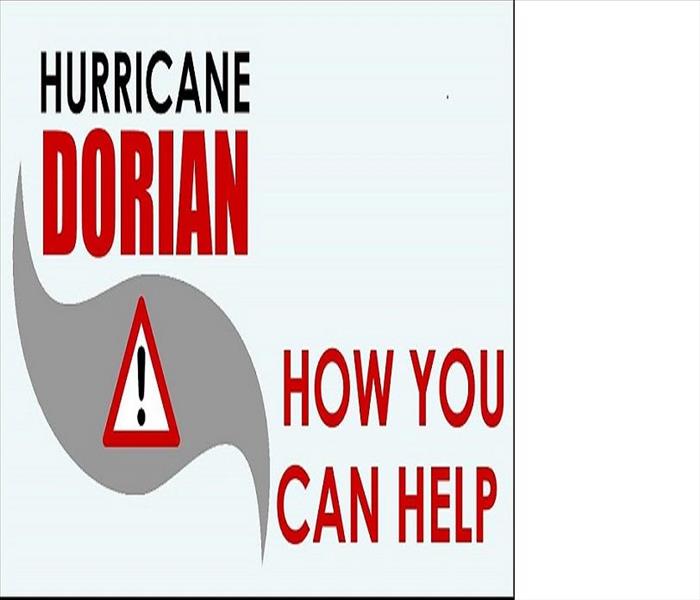How You Can Help Victims of Hurricane Dorian 2019
9/11/2019 (Permalink)
Hurricane Dorian roared ashore last week with 185 mph winds and heavy rains causing substantial damage to homes in Grand Bahama and Abaco before heading back out to sea, and returning to lash North Carolina’s Outer Banks. The storm was extremely powerful, long-lived, and destructive. Dorian developed from a tropical wave on August 24 in the Central Atlantic. The system gradually intensified while moving toward the Lesser Antilles, before becoming a hurricane on August 28. From August 26 to August 28, the storm affected Caribbean nations and territories devastated by hurricanes Irma and Maria in 2017. Dorian's 185 mph (295 km/h) sustained winds at landfall on Elbow Cay ties it with the 1935 Labor Day hurricane as the strongest landfalling Atlantic hurricane, measured by sustained winds. The true death toll is unknown, but news sources in the Bahamas suggested that it may exceed 3,000. Property damages were estimated at $7 billion for the Bahamas. Damage estimates in the U.S. and Canada are currently unknown
If you want to know what you can do to help out, here are a few tips:
- While you may want to send food and other items, the infrastructure may not support those donations. Many organizations have been clear that cash, or cash equivalent, is preferred.
- Be wary of personal solicitations on your doorstep or over the phone. Make sure that gifts made by checks or credit card gifts are secure. If you don't want to donate online or by text, most organizations have alternatives, like donation forms that you can mail together with a check.
- Check out the credentials of a potential donee/charitable organization before you donate. If you’re looking for a tax break, you can always confirm charitable status through the Internal Revenue Service (IRS) web site using the TEOS Search Tool. Remember that some organizations, like churches, may not be listed on the IRS website, so don't be afraid to ask organizations which don't appear on the list for more information.
- For federal income tax purposes, you can only deduct contributions to qualified tax-exempt charitable organizations.
- Read the fine print before sending money abroad. Details are always important but especially if you’re not familiar with an organization. You can always give to S. charities that provide international aid and still claim a deduction.
- Be sure to document your gifts and get receipts: the IRS requires that you do so for tax purposes and having the information available is handy if you want to follow up with another donation. Never hesitate to ask the charitable organization or your tax professional if you have questions.
If you want to help but aren't sure where to start, tax-exempt charities that have indicated they are accepting Dorian-specific donations include:
- American Red Cross.To make a financial donation, visit org, call 1-800-435-7669 or by mail a donation form.
- Catholic Charities of USA.To make a financial donation, visit CCUSA's disaster-specific website.
- Global Giving. To make a financial donation, visit their website.
- Salvation Army.To make a financial donation, visit helpsalvationarmy.org or call 1.800.SAL ARMY.
- Save the Children.To support Save the Children’s response efforts, visit their website.
- Team Rubicon.To assist a team of military veterans and first responders with their Bahamas response effort, you can make a donation on their website.
- Water Mission.To help provide emergency safe water solutions to people in dire need in the Bahamas, you can make a donation on Water Mission’s website.
- World Central Kitchen.To help Chef José Andrés feed survivors of Hurricane Dorian, visit WCK’s website: wck.org






 24/7 Emergency Service
24/7 Emergency Service
